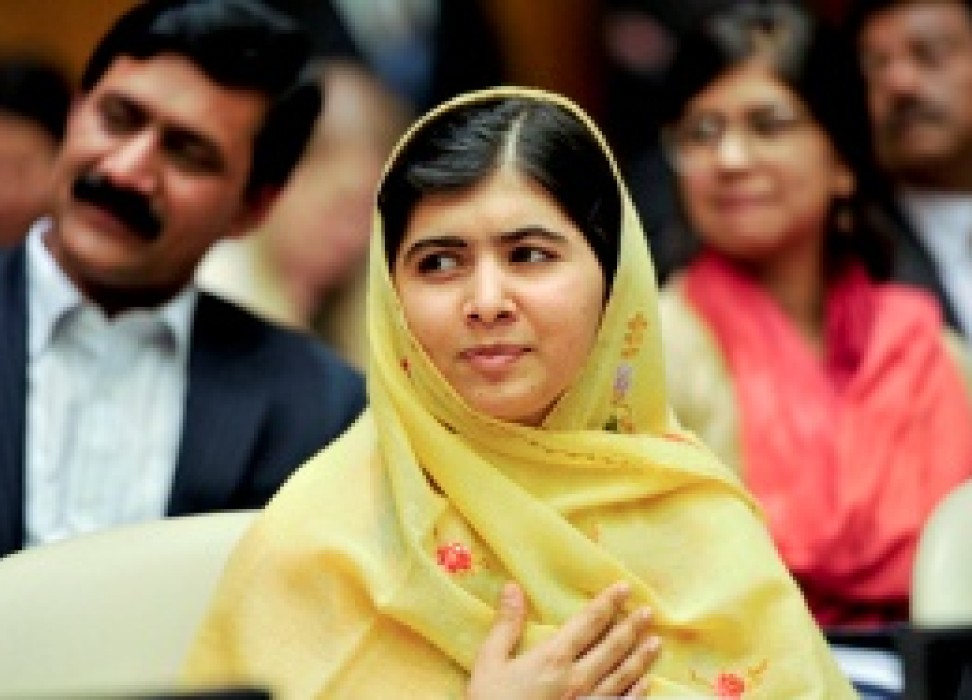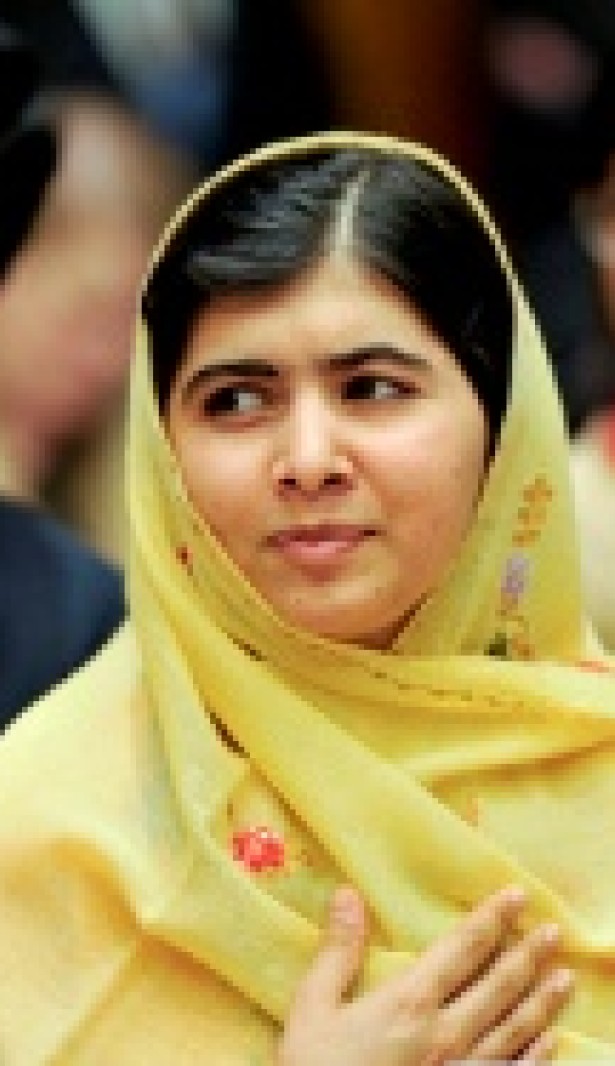Human Rights Prizes awarded in New York on Human Rights Day
12 December 2013

Marking the Human Rights Day on Tuesday, 10 December, United Nations honoured the six recipients of the 2013 Human Rights Prize, awarded to individuals and organizations in recognition of outstanding achievement in human rights. The winners were selected by a Special Committee comprised of the President of the General Assembly, the President of the Economic and Social Council, the President of the Human Rights Council, the Chair of the Commission on the Status of Women and the Chair of the Advisory Committee of the Human Rights Council.
In a ceremonial session of the UN General Assembly, celebrating human rights day and the 20th Anniversary of the Vienna Declaration and Programme of Action and of the establishment of OHCHR, UN Deputy Secretary-General Jan Eliasson awarded the prizes to this year’s winners: Biram Dah Abeid of Mauritania, a campaigner to eradicate slavery; Hiljmnijeta Apuk activist for the rights of people with disproportional restricted growth in the territory of Kosovo*; Liisa Kauppinen of Finland, President emeritus of the World Federation of the Deaf; Khadija Ryadi, Former President of the Morocco Association for Human Rights; Mexico’s Supreme Court of Justice; and Malala Yousafzai, a 16-year old Pakistani student who advocates for girls’ education.
Among previous recipients is Nelson Mandela, to whom many of the speakers paid tribute.
The awards ceremony was followed by an interactive dialogue with the laureates, each of whom gave an overview of their work, as well as their vision of what they wish the state of human rights should look like in 20 years, in their particular area of work, but also globally.
Khadija Ryadi responded that in the next 20 years, she would “like to see that Governments work more on implementation of the provisions of international treaties that they have ratified and also of the laws that they have already enacted,” a wish echoed by her fellow laureate Biram Dah Abeid.
Liisa Kauppinen said that “we need to see that the UN and the Member States work together to allow all children around the world to have access to education, including children with disabilities and deaf children in particular”, and she added that this right should be enshrined into the post-2015 development goals.
Representing the Supreme Court, Chief Justice Meza said that "we would like to see the courts all over the world pay more attention to their duties to protect human rights, with autonomy and independence" and that "the courts should serve as the last line of defence in democracies, in an effort to construct peaceful and harmonic societies". For her part, Hilmijneta Apuk said: "my dream is that Millennium Development Goals will become reality and that our planet Earth will become a global village, inclusive for all, without discrimination."
The theme for this year’s observance of Human Rights Day was ‘20 Years Working for Your Rights,’ marking the 20th anniversary of the Vienna Declaration and Plan of Action, adopted at the 1993 World Conference on Human Rights, which established the principle of universality of human rights.
“Promoting human rights is one of the core purposes of the United Nations, and the Organization has pursued this mission since its founding,” Secretary-General Ban Ki-moon said in his message for the Day. “Then, as now, the key to success is the political will of Member States.”
Mr. Ban added that over the past 20 years, the world has seen genocide and many other large-scale violations of international human rights and humanitarian law and that the primary obligation to protect human rights and prevent violations rests with the Member States, which should act on a national level, but also stand up when other States fail to live up to their commitments.
“The Vienna Declaration should be viewed as a blueprint for a magnificent construction that is still only half built,” the UN High Commissioner for Human Rights, Navi Pillay. She added that at the international level, a huge amount of work remains to be done “to transform human rights from abstract promises to genuine improvement in daily lives”, particularly among marginalized or excluded groups.
Human Rights Day stems from the General Assembly’s adoption of the Universal Declaration of Human Rights on 10 December 1948.
Other events at UN Headquarters in New York celebrating Human Rights Day featured tennis legend Martina Navratilova and NBA basketball player Jason Collins, who took part in a special event “Sport comes out against Homophobia,” as well as performances by Ithaca College students, who brought to life an Argentinian theatrical play “A proposito de la duda”, and also of the Deadalus Quartet, sponsored by the Permanent Missions of Argentina and Austria respectively.
12 December 2013
* Reference to Kosovo should be understood in full compliance with United Nations Security Council resolution 1244 and without prejudice to the status of Kosovo

